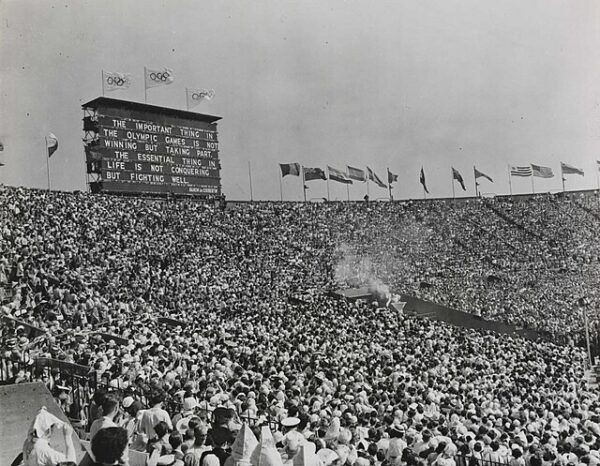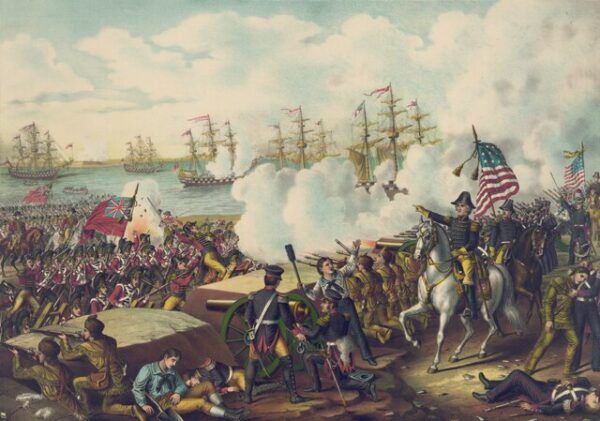On July 29, 1948, the world that had been torn apart joined together again in the spirit of unity through sports in what has been called one of the most important Olympiads ever.
Held in London, that year’s Olympics, known as the “Austerity Games,” faced numerous challenges due to the lingering impact of the war. Rationing was still in effect in the host city, and resources were scarce. Nevertheless, Londoners opened their hearts and homes to welcome athletes and visitors, showcasing the true spirit of hospitality and international cooperation.
History Today sets the scene: “The sun blazed down on Wembley Stadium in London on Thursday, July 29th, 1948, when the fourteenth games of the modern Olympiad were formally opened by George VI in the presence of a host of dignitaries and a crowd of more than 80,000 people. The King, in naval uniform, was accompanied by the Queen and Princess Margaret. Lord and Lady Mountbatten were there, as were the Shah of Iran and the Secretary-General of the United Nations, Trygve Lie. The members of the International Olympic Committee paraded on the turf in top hats. The games had attracted some 6,000 competitors from countries ranging through the alphabet from Afghanistan to Yugoslavia. The Germans and the Japanese were not invited and the Soviet Union stayed away. The Olympics of 1944 would have been held in Britain, but had been cancelled because of the Second World War, and there was a certain appropriateness in the fact that the 1948 games in London were the successors to the notorious 1936 event in Berlin, which had been employed for Nazi propaganda by the German regime.
The competitors marched round the arena, with the smallest teams – one competitor from Malta and two from Singapore – receiving particularly warm applause before the King was formally invited to open the games by Lord Burghley, himself an Olympic gold medallist (in the 400 metres hurdles in 1928). The trumpeters of the Household Cavalry sounded a fanfare, the Olympic flag was raised, 7,000 pigeons were released to swoop and flutter around the stadium and a salute of twenty-one guns heralded the arrival in the arena of the Olympic flame. The bowl was solemnly kindled in front of a hoarding with a famous quotation from Baron de Coubertin, founder of the modern Olympics, in words which had a certain ring to them in the circumstances. ‘The important thing in the Olympic Games is not winning but taking part. The essential thing in life is not conquering but fighting well.’”
The Opening Ceremony was also one of the first captured in color video:
The games were not without critics, however. “Despite limited preparation time and after much debate over the need for a sports festival at a time when many countries were still recovering from the destruction of World War II,” Brittanica writes, “the 1948 Olympics ultimately were very popular and were perceived as providing relief from the strains caused by the war.
Germany and Japan, the defeated powers, were not invited to participate. The Soviet Union also did not participate, but the Games were the first to be attended by communist countries, including Hungary, Yugoslavia, and Poland. The London Games lacked the new facilities that had been used in Los Angeles and Berlin, but the British capital’s sports facilities had survived the war in good condition and were adequate for Olympic competition. Wembley Stadium hosted the opening ceremonies, the track-and-field competition, and other events. There was no Olympic Village; the male athletes were housed at an army camp in Uxbridge, while the women stayed in dormitories at Southlands College.
Over 4,000 athletes from 59 countries participated in the Games. Poor weather and a sloppy track slowed the track-and-field competition, in which the fewest Olympic records were set in the history of the Games.”
Despite the austere conditions, athletes demonstrated extraordinary perseverance on the field. The Games witnessed the emergence of several legendary competitors, including Dutch sprinter Fanny Blankers-Koen, who became the darling of the Olympics with her stunning victories in four events, earning her the moniker “The Flying Housewife.” American high jumper Alice Coachman also etched her name in history, becoming the first black woman to win an Olympic gold medal.
Beyond the athletic achievements, the 1948 Summer Olympics became a beacon of hope and unity. It was a celebration of humanity’s ability to overcome adversity and rebuild after the ravages of war. The Olympic Village, a melting pot of cultures and backgrounds, exemplified the power of sports in fostering understanding and friendship among nations.
As the curtain fell on the XIV Olympiad, the world recognized the significance of the 1948 Summer Olympics in restoring the spirit of international cooperation. The event left an indelible mark on the collective memory, inspiring generations to come with its message of resilience, unity, and the pursuit of excellence. The legacy of the “Austerity Games” lives on, reminding us that even in the darkest times, the Olympic Games can shine as a beacon of hope and peace for all of humanity.






